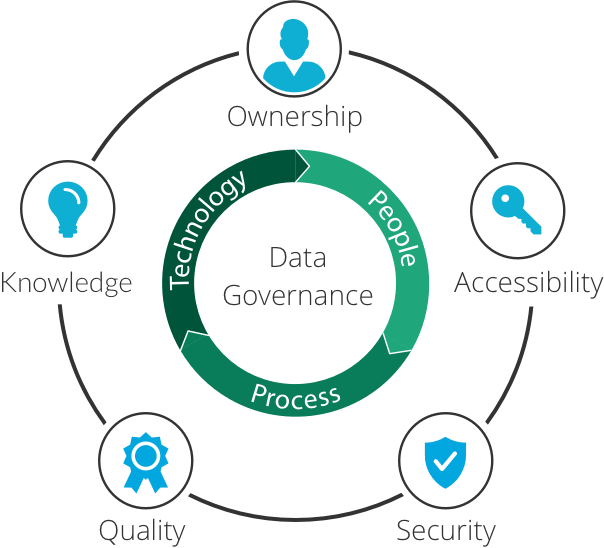If you are concerned about your privacy when using the Internet, you may have already considered using a VPN or proxy server. Both increase the security of your Internet connection, but how exactly do they work and how do they differ? If you’re looking to improve your privacy online, it’s important to understand the differences between VPNs and proxy servers, to ensure you select the right tool for the job.
VPN and proxy servers defined
Both VPNs and proxies provide greater privacy by allowing you to hide yourIP addressin different ways. How they do this, and the extent to which they offer other privacy features, varies widely.
What is a proxy server?
In general, when you browse the Internet, your computer connects to a website directly and starts downloading pages for you to read. This process is direct. However, when you use a proxy server, your computer sends all web traffic to the proxy first. The proxy forwards the request to the target website, downloads the information, and sends it to you.
By hiding IP addresses in this way, proxy servers allow users to bypass monitoring and content restrictions. For example, users may view geo-restricted content, such as a Netflix subscriber located in the UK connecting to a US proxy server to access Netflix US content.
What is a VPN?
VPN stands for virtual private network. A VPN creates an encrypted tunnel for your data, protects your online identity by hiding your computer’s IP address, and allows you to safely use public Wi-Fi hotspots.
VPNs work at the operating system level. This means that they redirect all traffic, whether it comes from the browser or from an app. They also encrypt the traffic between the Internet and the device. As a result, the Internet Service Provider (ISP) cannot see what you are doing online, they can only see that you are connected to a VPN server. This encryption also gives you protection from website tracking, government surveillance, and any hacker trying to spy on your device.
What is the difference between a proxy server and a VPN?
The differences between proxies and VPNs include:
VPNs encrypt information
VPNs encrypt all the data you send or receive, while a proxy does not. For sensitive transactions such as those for banking or online shopping, data encryption offers additional security, as it means cybercriminals cannot snoop on your credit card details or login credentials.
Free proxy servers can be slower
Depending on how users access them, both proxy servers and VPNs can slow down browsing. But this is more common with free proxy connections: these can be slower (and less secure), due to fewer configuration options, poor infrastructure, and less user support. While speeds vary by provider, VPNs are usually the fastest option.
VPNs usually have a cost
It is not a good idea to use a free VPN service as they are limited in what they can offer and tend to mine your data. As a result, users often opt for paid VPNs, which offer stronger data encryption and are more secure. Instead, many proxy servers are free. This means that VPNs tend to be the most expensive option in general.
VPNs offer greater coverage.
VPNs work at the operating system level and route all traffic through the VPN server, while proxies operate at the application level and only route traffic from a specific browser or app. In other words, VPNs encrypt all web activity, regardless of the website or app, while proxy servers only hide one website or app at a time. As a result, VPNs offer greater coverage for users.
Most VPNs do not log traffic
Most VPNs do not log web traffic, unlike proxy servers. If you are looking for complete privacy, use a VPN provider that has a no-logging policy: this means that they will not record and store your activity while you use their service to browse the Internet. In contrast, a free proxy could monitor traffic to sell the data to third parties.
Types of proxies
There are different types of proxies. The most common include the following:
HTTP proxies
These are designed for web based traffic. The user binds the proxy server to the web browser’s configuration file, or uses a browser extension if the browser does not support proxies, and all web traffic is routed through the remote proxy. This class of proxy is used to access geo-restricted content, for example, an online video that may be restricted in your region (note however that this may violate the user agreement with the content provider) .
If you’re using an HTTP proxy for sensitive activities, such as banking or online commerce, it’s important to use an SSL-enabled browser and connect only to websites with an up-to- date SSL certificate . Proxies do not encrypt traffic, the only encryption you receive when you use them is the encryption that you can guarantee.
SOCKS5 proxies
SOCKS5 proxies work on websites, but can also be used to access file sharing sites, video streaming services or online games. However, connecting to an app through a SOCKS5 proxy may be slower. This is because free proxies can have slower infrastructure, fewer configuration options, and less user support.
Transparent proxies
Proxy servers are not just used to unblock certain websites. They can also be useful for the opposite purpose. For example, certain organizations (companies, schools, libraries), or even parents, may use a transparent proxy to block or filter user content when using the Internet. You may have even used a transparent proxy without knowing it.
What should I use, a VPN or a proxy server?
If your goal is to hide your IP address , you can do this with either a proxy server or a VPN. And, if you are concerned about browsing speed and just want to hide your IP address from a single site or app, then a free proxy server will suffice.
On the other hand, if you want to keep your browsing activity hidden from other users, using a VPN to browse the Internet is the best option. This is due to encryption: VPNs encrypt your data while you are online, something proxy servers do not. This is important because a VPN offers a higher level of security if you carry out activities such as online banking or online commerce.
While the best VPN providers charge for their services, the security they offer means that sensitive personal and financial information on your computer is protected from the actions of potential malicious actors.
In short: A VPN offers better privacy and security than a proxy server, because it routes traffic through a secure VPN server and encrypts the traffic. A proxy will only pass information through an intermediary server, but will not necessarily provide greater protection. Unlike proxies, VPNs work at the operating system level, to secure all traffic.
Do you need both a VPN and a proxy server?
In short, no. You do not need to use a proxy server if you already use a VPN. VPNs perform the same function as a proxy server, but they also offer more (and better) features. However, if you use a transparent proxy to block certain websites, you can use a VPN to bypass these restrictions.
web-proxy vs. VPN: Frequently Asked Questions
Not all VPN providers and proxy servers are created equal, so we recommend that you research your options to understand the features and benefits of the products before choosing one. It hides your IP address and does not keep any activity logs, which means that it does not monitor or store your digital activity.




